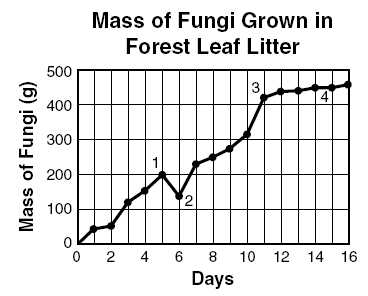Polar bears have fur to keep warm
Adaptation
What is the last step of the scientific method?
What is to make a conclusion?
are viruses bigger or smaller than a cell?
smaller
What are antibiotics used to treat - bacteria or viruses?
bacteria
what are the 3 domains?
eukarya, archaea, bacteria
homeostasis
what is the variable that we change called?
independent variable
What is genetic material and a protein coat (capsid)?
How do we prevent viruses from spreading?
using vaccines
what level of classification is the most specific?
species
Plants increase transpiration when the temperature is too high
homeostasis or react
what is the variable that we measure called?
dependent variable
Are viruses living?
NO!
what did Pasteur and Redi discover from their experiments?
organisms don't spontaneously generate!
Organisms that are multicellular, heterotrophic, and have cells with cell walls belong to which kingdom?
fungi
Cells make tissues and tissues make organs.
organization

what is a conclusion you can make by looking at the graph?
the mass of mushrooms increases over time
what do living things, like bacteria, nonliving things, like viruses, have in common
genetic material
True or False - if a bacteria is resistant to an antibiotic, it will survive and reproduce - making more antibiotic resistant bacteria
true
Organisms that are prokaryotic, unicellular, and live in extreme environments belong to which kingdom?
archaea
How many of the 8 characteristics of life do things need to be considered living?
all of them!
one way to increase the validity (trustworthiness) of our data is to -
have a control group
use multiple trials/larger groups
have as many constants as possible
An important difference between living cells and viruses is that viruses need what to reproduce?
a host cell
In Koch's experiments with mice, what happened to the healthy mouse when he introduced the cultured microorganism?
it got sick
organisms that are unicellular and eukaryotic belong to which kingdom?
protista